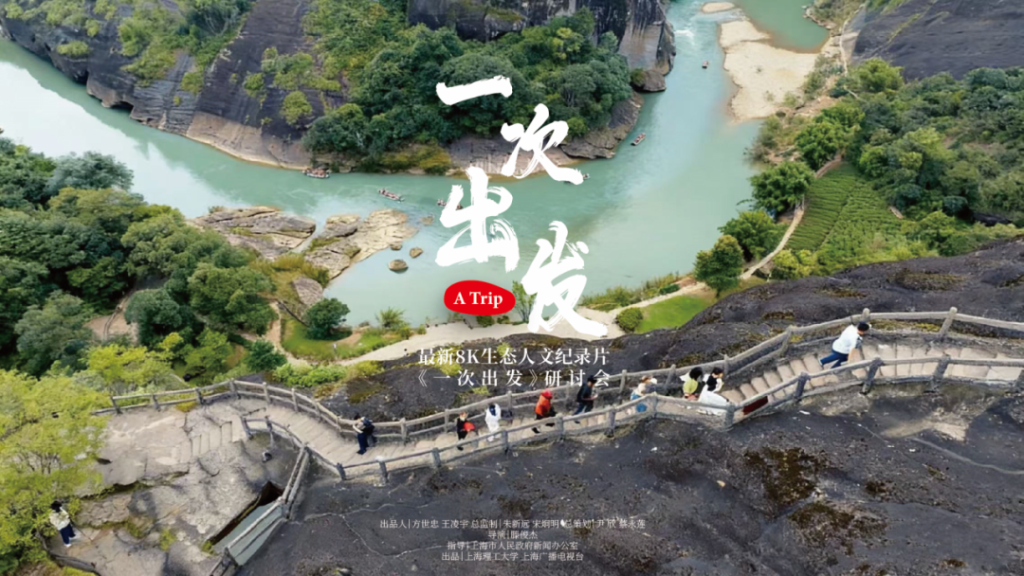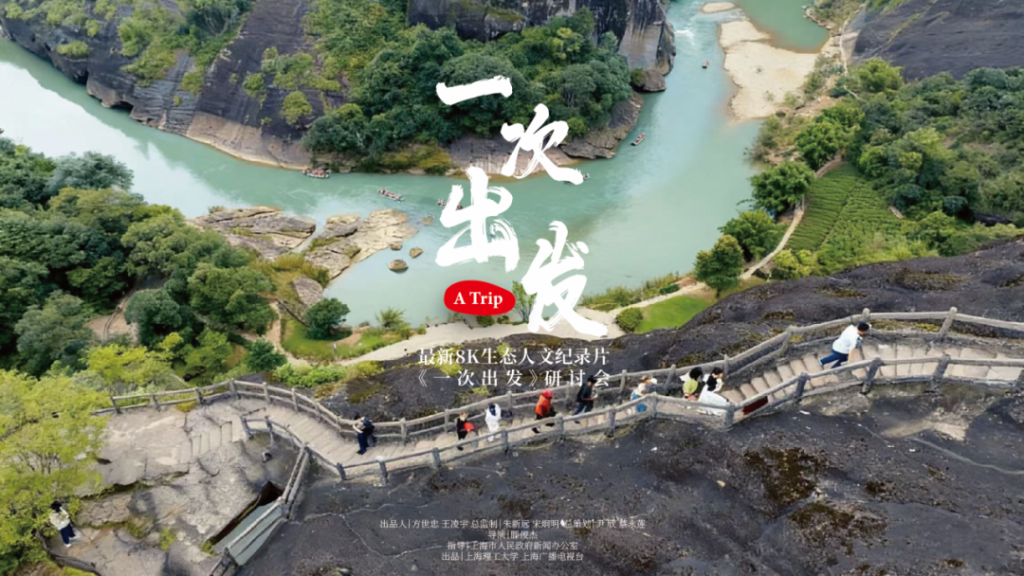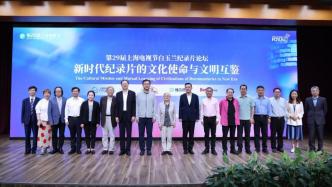
According to statistics from "China Audio-Visual Big Data", among the TV programs broadcast on satellite channels throughout last year, documentaries ranked third in terms of broadcast time, following TV dramas and news programs. At the same time, more and more short documentaries are becoming popular with the help of the Internet.
"The changes that Vincent Video has brought to the documentary creation process and production methods are the embodiment of new quality productivity. First of all, technology has brought about tremendous changes. New quality productivity is not only in technology, but also in virtual reality, AR, VR, MR, etc., which have all made tremendous changes in creation. Big data and cloud computing, in particular, provide creators with user portraits and precise supply, which has played a particularly important role." On the morning of June 27, at the 29th Shanghai TV Festival Magnolia Documentary Forum, Chen Hong, deputy director of China Education Television, executive vice president and secretary-general of the Documentary Academic Committee of the China Television Association, said.
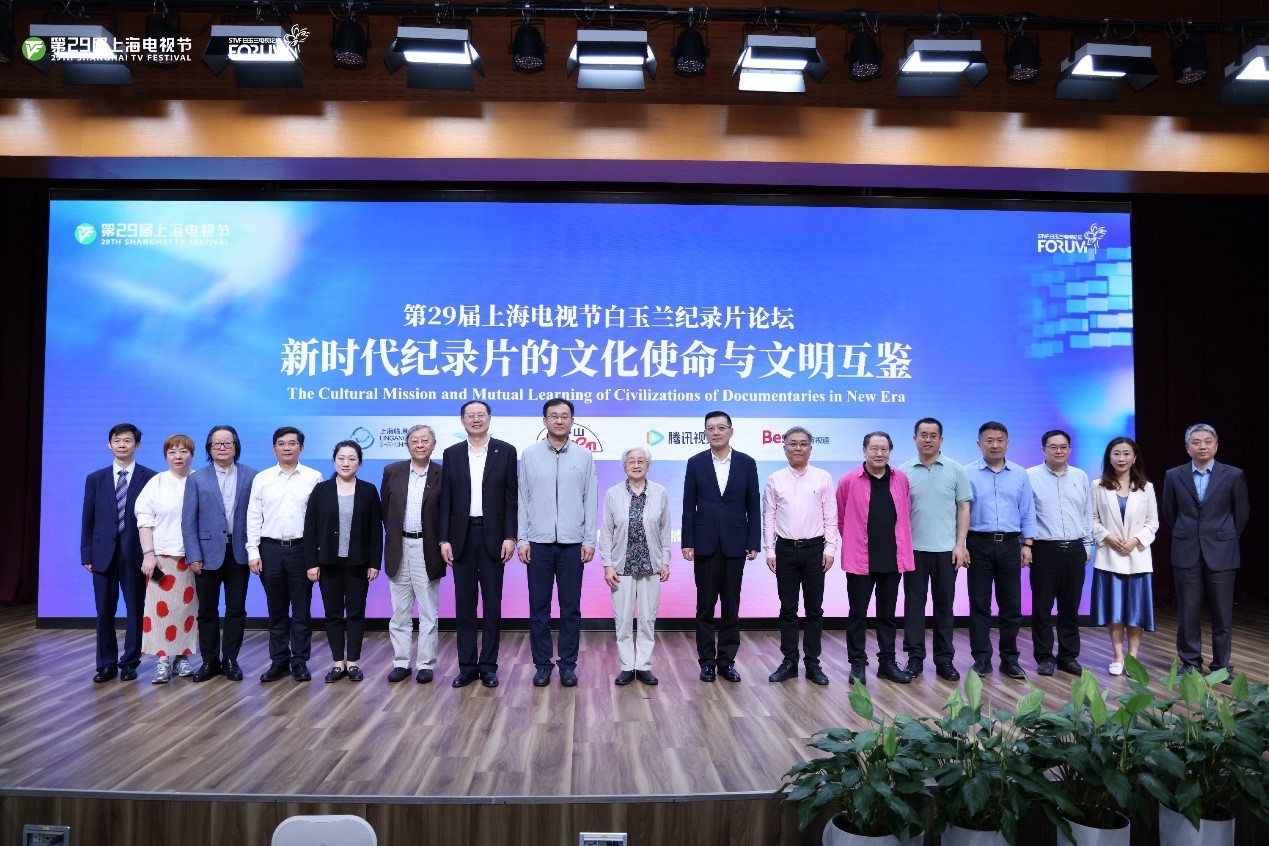
Group photo of guests
This forum with the theme of "Cultural Mission of Documentary Films in the New Era and Mutual Learning among Civilizations" was jointly hosted by the Documentary Center of Shanghai Jiao Tong University and the Documentary Center of Shanghai Radio and Television Station. The forum invited outstanding documentary filmmakers, industry experts, and institutional representatives from China and abroad to gather together for in-depth exchanges and discussions on how documentary creation can explore the contemporary significance of Chinese traditional culture and vividly present a credible, lovable, and respectable image of China; how to keep abreast of the times, actively embrace technological innovation, and attract more audiences with new narratives and voices; how to strengthen international exchanges and cooperation, continuously launch high-quality co-produced content, and promote the international dissemination of Chinese stories and exchanges and mutual learning between Chinese and foreign civilizations.
Talking about the development trend of Chinese documentaries in the past decade of high-quality development, Chen Hong summarized three points:
First, the subject matter is richer; second, there have been tremendous changes in artistic forms; and third, international communication has been greatly expanded.
"In terms of theory, it includes the outline of the development history of Chinese documentaries, the sorting out of Chinese documentary creation schools and models, and Chinese documentary figures. These directors who have been working silently on the documentary front, both old, middle-aged and young, should promote and shape them well."
How do we see the contemporary value of documentary films?
Xia Meng, vice president of the China Documentary Society, documentary director and national first-class screenwriter, who has been deeply involved in the field of major documentaries, believes that "from my personal practice, there are still many documentary films. Although we show more history, they have contemporary value because many things on the spiritual level of people will not change with the times. Which philosopher today can say that he can surpass Plato and Wang Yangming? No, so things on the spiritual level will always be inherited."
Xia Meng feels that although documentary films talk about history and a lot of things are about the past, in fact a lot of its spiritual content can transcend time and space, and it is precisely because of this that it can resonate with people.
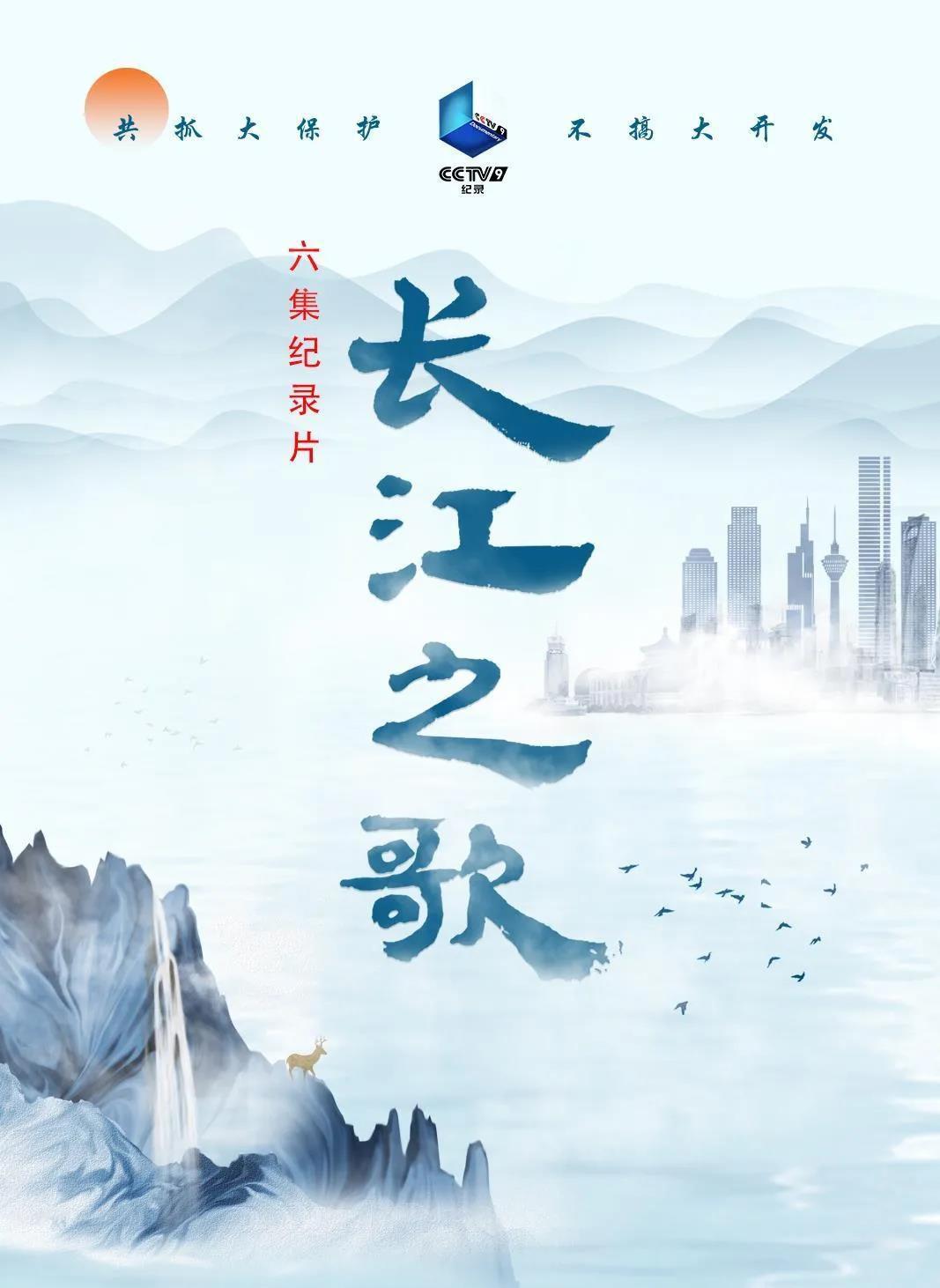
Poster of Song of the Yangtze River
China is a two-river civilization, and the documentary "Song of the Yangtze River" tells us all about it. From Sanxingdui, Jinsha, Shijiahe, and Liangzhu, a complete Yangtze River civilization system is formed.
"Moreover, this system has been adopted by Harvard's latest revisions of Chinese history and Asian history. It existed not only in the ancient Middle East, but also in China, and there is a lot of evidence to support it. For example, in Shijiahe, a kind of pottery cup very similar to the shape of a mug was unearthed there. The number of it is as high as 12 million. It already had commodity attributes more than 4,000 years ago, which is very remarkable. As people in the south of the Yangtze River, we should be proud that rice-growing civilization is more advanced than wheat-growing civilization, because rice planting requires the communication of water systems and the cooperation of villages and tribes to build a good water system. Through archaeological discoveries over the years, it has constituted a very splendid and long-standing aspirational culture of Chinese civilization. Documentary documentaries have practical significance for the present, and in the future, documentary films will have greater development." Xia Meng said.
Documentary plays the role of "image chronicle of the times". In recent years, it has shown distinctive characteristics of multi-dimensionality, multi-level and diversity. Zhang Yanli, executive deputy director of the New Viewpoint Center of Radio and Television and editor-in-chief of China Documentary Network, believes that "documentary is developing better and better in China now, and the audience group is getting bigger and bigger. In the past, we talked about the 'three highs' group of documentaries, but in fact, the age level of documentary audiences is gradually sinking."
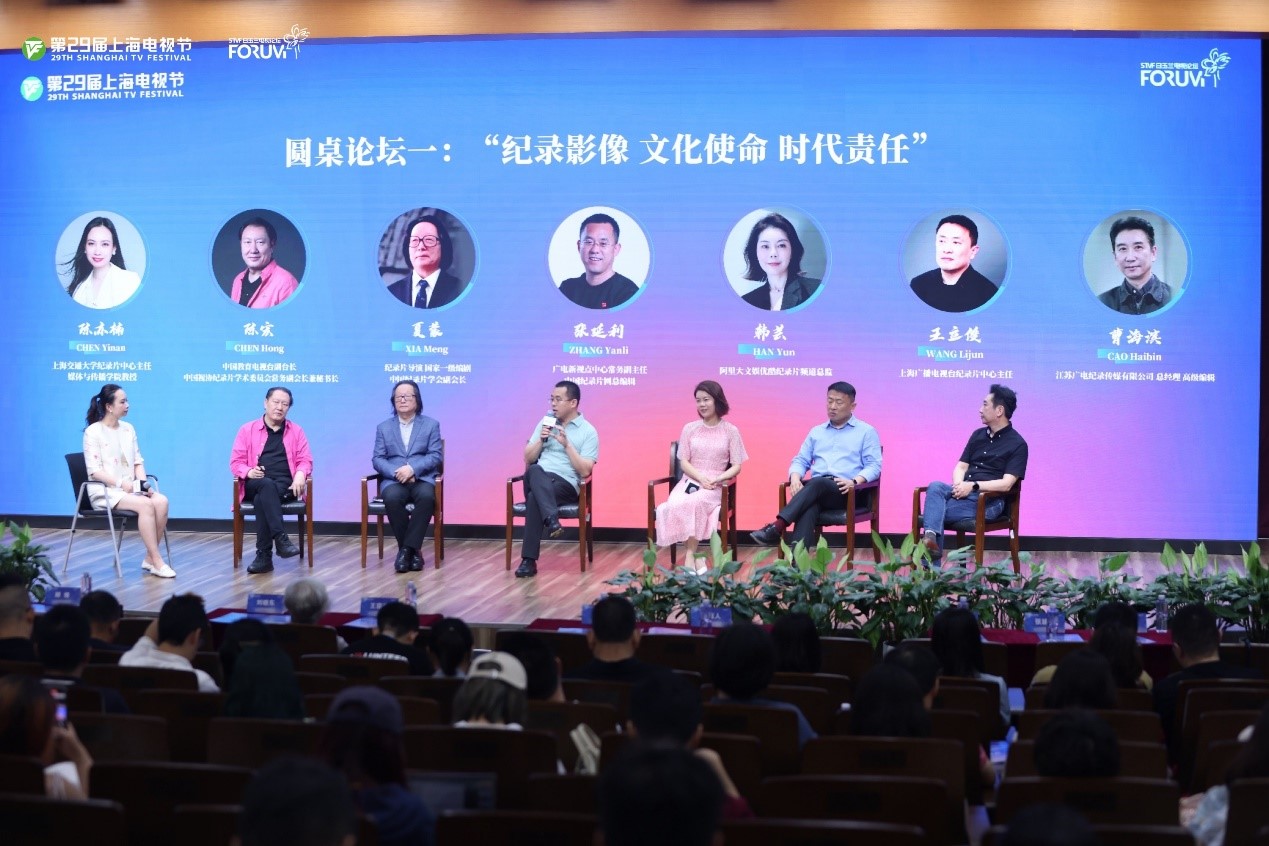
Forum site
At the beginning of this year, OpenAI launched a new AI model, Sora, which caused a stir in the entire film and television industry. As early as the end of last year, Youku announced the large-scale historical documentary "History of China" and the immersive science fiction documentary "Moon Hotel" produced with AIGC technology. Han Yun, director of Youku Documentary Channel of Alibaba Entertainment, shared Youku Documentary's exploration experience in AIGC in recent years.
Han Yun introduced, "On the first level, we believe that AIGC can reconstruct the image standards of our documentaries. For example, we can explore the world of dinosaurs, or we can make it present the ultimate future universe of The Three-Body Problem. Including in many historical, future, and science fiction projects, we can use AIGC to get infinitely close to the people and scenes we know. This is the big difference between AIGC and ordinary live-action. On the second level, I don't see it as a work, but as a product. AIGC is a very good product production tool. On the third level, AIGC has auxiliary functions for our daily production. For example, Youku has obtained the voice authorization of Mr. Zhao Zhongxiang. In the future, we can use AIGC to simulate Mr. Zhao Zhongxiang's voice and appear in many natural documentaries."
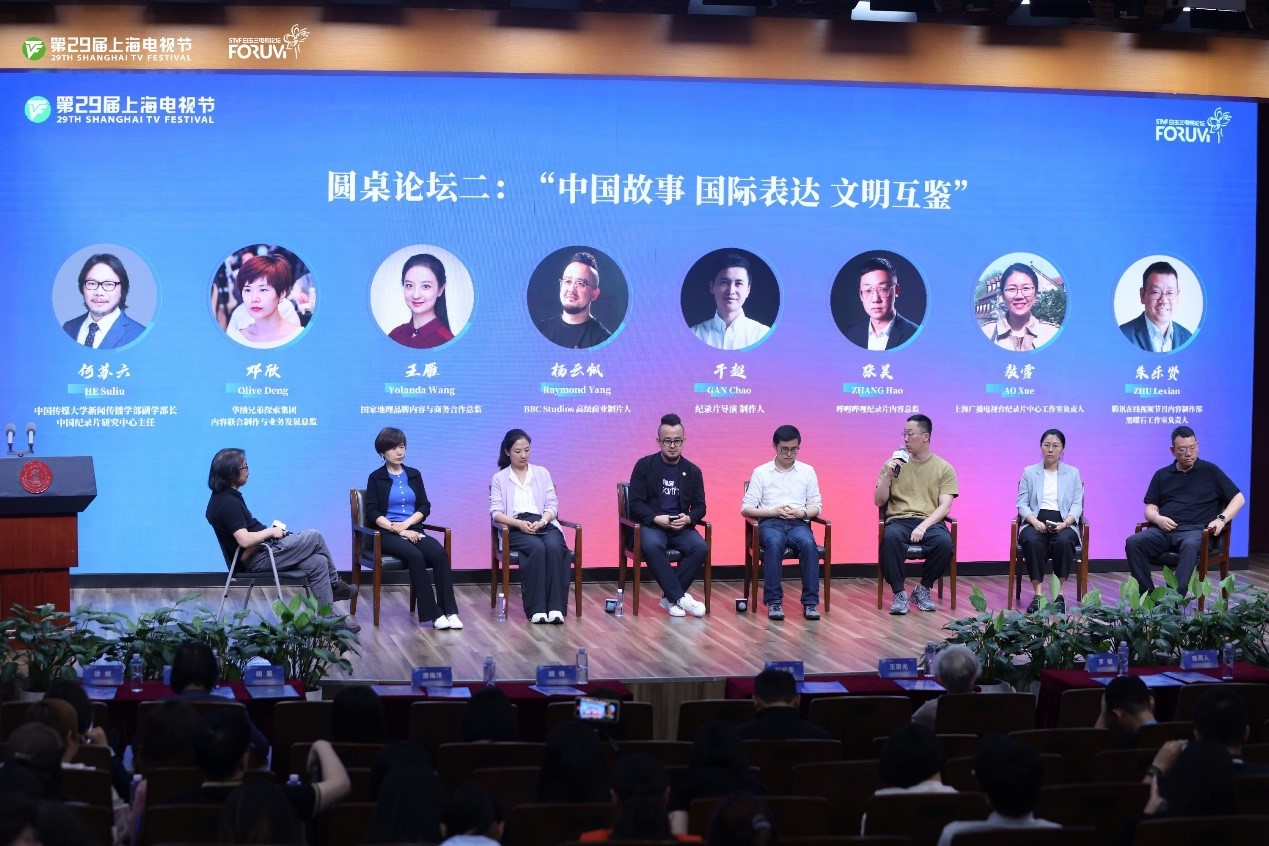
Forum site
How do "Shanghai-style documentaries" represented by Shanghai record the times and tell the Chinese story to the world by vividly presenting a credible, lovable and respectable image of China?
Wang Lijun, director of the Documentary Center of Shanghai Radio and Television, said: "A recent work, "Front Wave", was broadcast online, and netizens left some comments, which were very touching. Why do netizens like this documentary about the elderly so much? There may be one thing they have in common. This documentary has changed many people's stereotypes about the elderly. The elderly presented in this documentary are no longer the elderly we think they are. If we extrapolate from this point, how can we tell Chinese stories well? More importantly, it is to change the stereotypes of Westerners, or the international community, about our China."

Poster of "Front Wave"
Wang Lijun believes that we are committed to creating rich and diverse content. In addition to some of the content that we lead to express traditional Chinese culture, there are also programs like "Wenyun China" that look at traditional Chinese culture through the visits of foreigners.
"From the industry's perspective, many countries do not think that China has the ability to produce good natural geography documentaries, so we are also working hard to make these attempts. For example, we have already filmed the first and second seasons of "National Parks", and we are currently filming the third season. Our goal is to present all of China's national parks in a wonderful way. We are also filming Dongtan to show it to the world. Shanghai is such a big city, but there is such a precious wetland. As an important transit point on the migratory route of migratory birds, we are also filming some other natural geography-related documentaries. We hope that through these filmings, we can show China's efforts and current situation in natural ecological protection. In this regard, we are using ultra-high-definition equipment and 8K equipment to shoot. In the future, we will be able to show the current situation and wonderfulness of China's natural geography to the world through various means, not only through broadcasting, but also through offline exhibitions and art design."
Wang Lijun added that in addition to this, the Shanghai documentary style is to focus on the daily life of the people. For example, the rural theme of "Above the Fields" hopes to present the current situation of rural China through specific cases. By focusing on these people and stories with the daily life of the people, a richer, more diverse and real China can be presented.
In terms of subject matter selection, how will the platform integrate its characteristics and positioning?
Cao Haibin, general manager of Jiangsu Radio and Television Documentary Media Co., Ltd., said, "We released a list of documentaries for 2023 last month, including 16 works covering four categories: major themes, traditional culture, natural sciences, and historical humanities. The humanistic characteristics of our Jiangsu were first shown in "Mei Lanfang", "Six Hundred Years of Kunqu Opera", "Marco Polo: From History to Modernity", and "Yuhuatai". Yuhuatai is geographically located in Nanjing, and its spiritual coordinates are the place where the Chinese Communists were martyred during the New Democratic Revolution. It also has Jiangsu characteristics and national heights." Regarding the Nanjing Massacre, a catastrophe in the history of world civilization, Cao Haibin's team has so far made 12 related themes, collecting domestic and foreign archival materials from various perspectives. "As a local media, a media where the incident occurred, we have the responsibility to tell more people about this history. Whether from the perspective of traditional culture or historical humanities, we have the responsibility to be a Jiangsu characteristic, but we must have a national perspective and national heights."
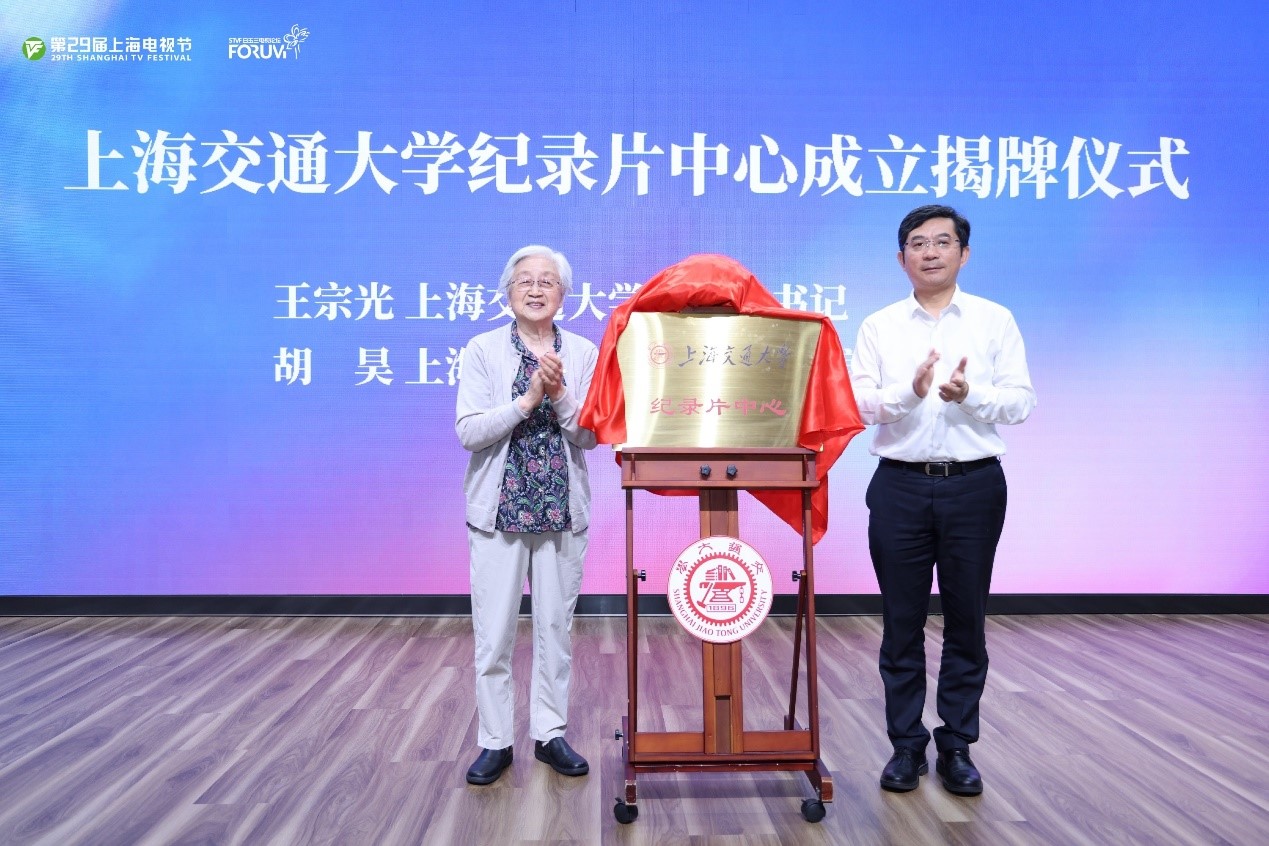
Shanghai Jiao Tong University announces the establishment of a documentary center
On the same day, in order to further promote academic exchanges and industry practices in the field of Chinese documentaries and build a theoretical research institution and practical application base integrating industry, academia and research, Shanghai Jiao Tong University announced the establishment of a documentary center. In the future, the documentary center of Shanghai Jiao Tong University will be based on the national key disciplines of Shanghai Jiao Tong University, focusing on documentary creation, industry research, talent training, and international exchanges. Adhering to the concept of Chinese aesthetics, Chinese style, and international vision, it will help build a Chinese discourse system for documentaries and tell Chinese stories to the world.
Subsequently, the Documentary Center of Shanghai Radio and Television and the Documentary Center of Shanghai Jiaotong University jointly released the documentary "Dialogue with ASEAN", which is a key project of the Ministry of Foreign Affairs and the State Administration of Radio, Film and Television. This year marks the 75th anniversary of the founding of the People's Republic of China and the China-ASEAN Cultural Exchange Year. The Documentary Center of Shanghai Radio and Television was commissioned by the Ministry of Foreign Affairs and the State Administration of Radio, Film and Television to produce the large-scale documentary "Dialogue with ASEAN", which has been included in the list of projects for the China-ASEAN Cultural Exchange Year. The documentary "Dialogue with ASEAN" focuses on the fruitful results of interconnection, win-win cooperation, and exchanges and mutual learning between China and ASEAN countries in five major areas, including society, economy, ecology, science and technology, and humanities. The documentary's imaging techniques echo the "China-ASEAN Community of Shared Future Initiative" and show the beautiful vision of China and ASEAN member states working together towards the future.
The documentary "Dialogue with ASEAN" will be supported by Shanghai Jiao Tong University, which will once again witness the in-depth cooperation between the Documentary Center of Shanghai Radio and Television Station and Shanghai Jiao Tong University. Previously, relying on the profound academic background of the Tokyo Trial Research Center of Shanghai Jiao Tong University and the international production capabilities and vision of the Documentary Center, the two parties joined forces to create two widely acclaimed documentary series, "Tokyo Trial" and "Asia-Pacific War Trials". This time, the two sides complement each other's strengths and work together to make "Dialogue with ASEAN" another masterpiece, which is expected to be broadcast in October this year.
